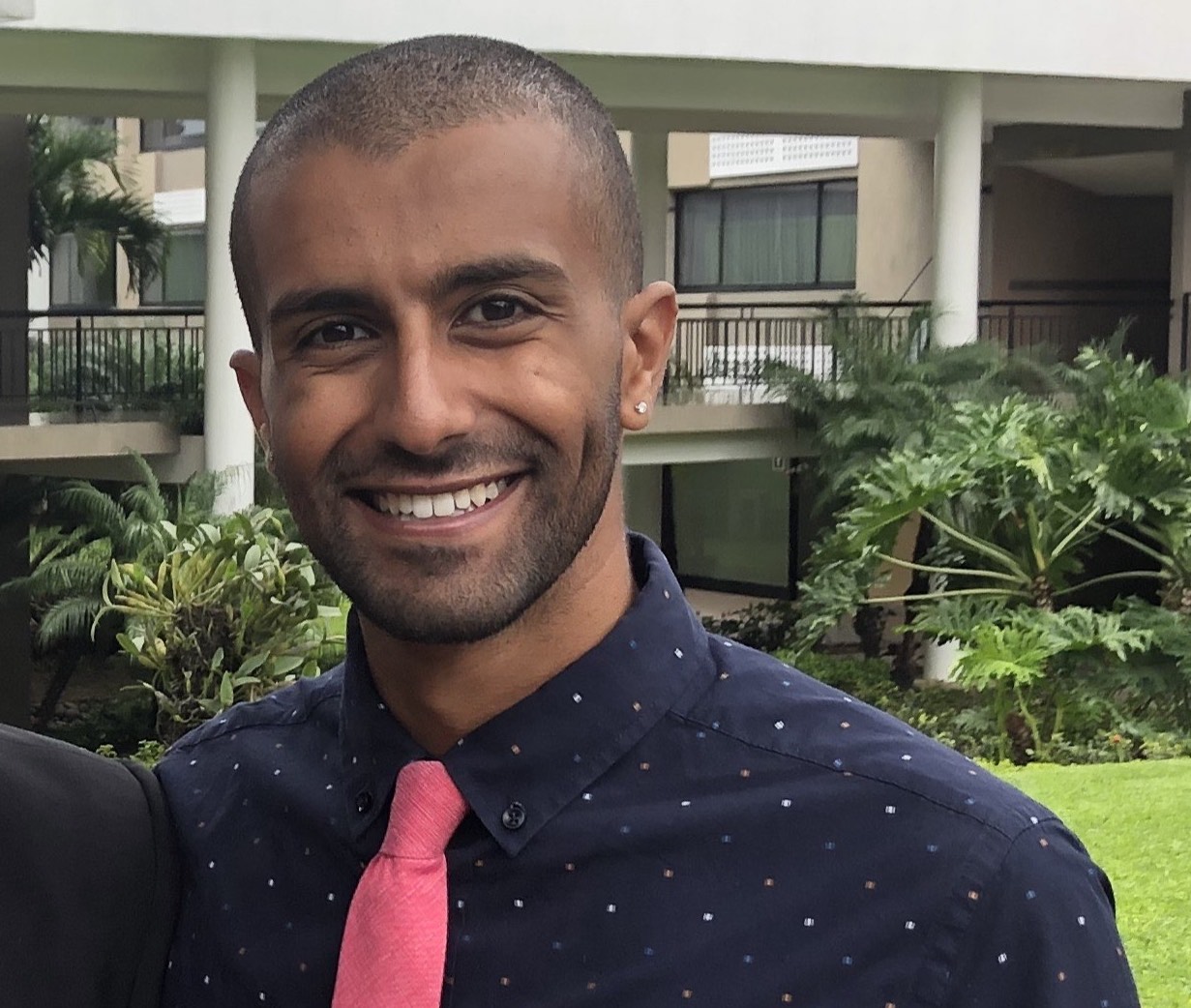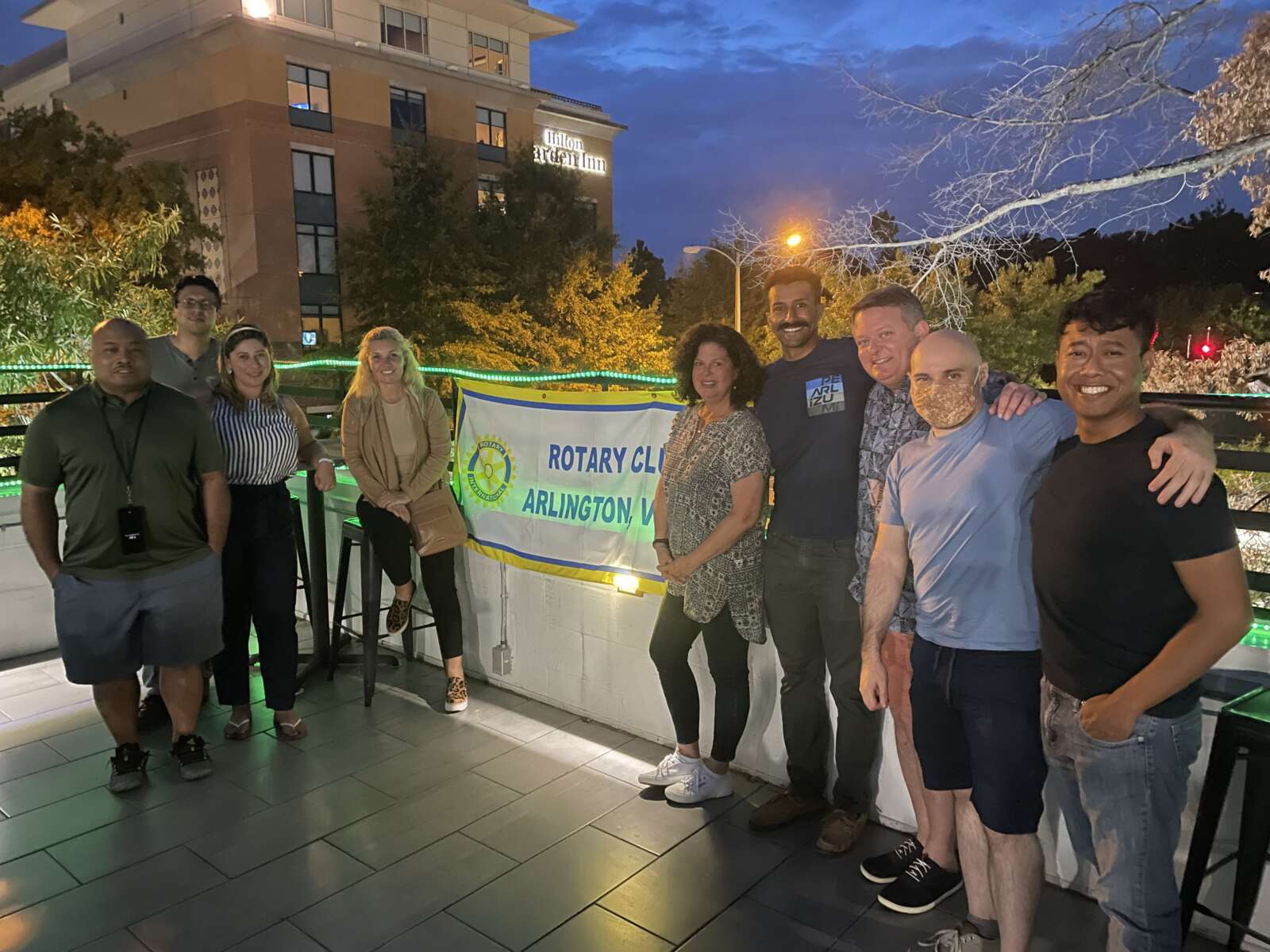David Baas may be the youngest and first Black president in Arlington Rotary Club‘s 94-year history, but that’s not going to change how he’s going to do the job.
The 28-year-old will take over as president for a local chapter of the Rotary Club early next month, becoming possibly the youngest person to lead the chapter as well as likely the first person of color. His agenda includes modernizing operations, forming new partnerships, and finding ways to make the club more accessible to a younger generation.
While he’s proud to be the first on a couple of levels, Baas tells ARLnow that it doesn’t change the task at hand.
“I don’t want to make it too much about me being young and being Black,” he tells ARLnow. “I’m going to be doing the same job as the past 94 presidents.”
The Arlington Rotary Club was founded on July 4, 1929, according to the organization’s website. It was the first Rotary Club based in Arlington, though there are now two other chapters: Rosslyn-Fort Myer and Pentagon-Crystal City.
In total, there are about 30,000 local Rotary clubs in 200 different countries. The Club’s overall mission is to “make a difference in the world” through service projects and charitable contributions with a focus on education and health. Among other goals, the organization has made a major effort over the last several decades to eradicate polio.
“Each local club and each local district has their own initiative,” says Baas. “For our club, a lot of what we do has to do with scholarships and financial assistance to low income populations in the community.”
Baas was born in Ethiopia, where his father was the U.S. ambassador from 1992 to 1994. When he was four years old, his family returned to the United States and settled in Arlington. He attended the Spanish immersion program at Key Elementary School, then Gunston Middle School and Wakefield High School.
While at Wakefield, he helped host 40 exchange students from Pakistan which was a project that was sponsored by the Pentagon-Crystal City Rotary Club. It was an amazing experience, he said, and one that led him to attend his first Rotary Club meeting, three blocks from his parents’ house, right after graduating from college.
But he noticed something instantly.
“When I first walked into the Rotary Club meeting room, I was easily the youngest and definitely the only member of color,” he says.
That’s changed somewhat in recent years, but Baas’ aim is to broaden the club’s reach even more. One of the first things he wants to is to make meetings more convenient for younger professionals by having them in the evenings and accessible via public transportation. Prior to the pandemic, meetings were often held in the middle of a weekday at the Washington Golf and Country Club in North Arlington.
He’s also looking to update the club’s website and social media channels. Plus, the organization is discussing creating new partnerships, including with the NAACP, Baas says.
Baas isn’t the only younger person to take on a leadership position in recent years at an organization that has traditionally skewed older, white, and male. Last year, Arlington County Civic Federation’s efforts to have more diverse leadership also bore some fruit.
“I hear that question a lot… ‘Is the Rotary Club just for old, white guys?’,” he says. “There’s definitely that perception, but we’ve come a long way.”
There’s still work to do, though, and it starts with the events and service projects. Especially, he says, since some older members are more likely to donate money instead of time.
While in-person events are still limited, the Rotary Club calendar still has plenty on it including a tour of the county’s water treatment plant and a conversation with the head of the Northern Virginia Conservation Trust. He also says there are also upcoming happy hours and packing of bagged lunches for the Arlington Food Assistance Center.
In April, the club awarded $18,000 in college scholarships to two Arlington high school students — an annual tradition.
Baas says the issues that the Rotary Club tackles — education and helping with folks in the community who are experiencing homelessness — resonate with many younger professionals. Most importantly, he says, the club’s current members are “really good people that really care about the community.”
That’s a good selling point for joining any organization, no matter who you are, Baas said.



